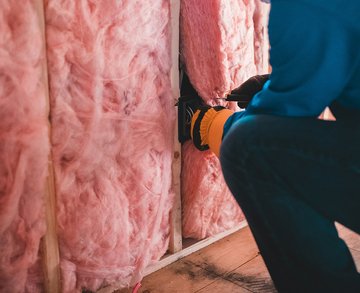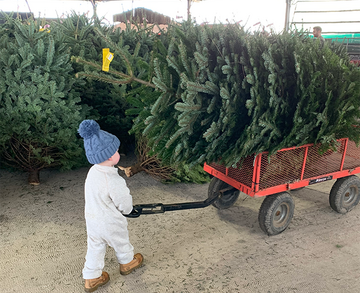Every property owner wants a fully functioning plumbing system, but one of the most common issues that plague homeowners is faulty drains. To minimise any damage or to ensure problems don't accelerate, early detection of drain problems is key, saving you time, money, and preventing more severe damage to your home.
With all that in mind, here are eight signs of drain problems to look out for:
Slow Draining in Sinks, Baths and Appliances
Probably one of the clearest signs of drainage trouble is general slow draining. If you start to notice that your sink, bathtub drain, or shower is draining water more slowly than usual, this could be indicative of some blockage farther down the line. This may be caused by a buildup of hair, soap scum, grease, or other debris. Most commonly, the kitchen sink is slow because of food particles and grease, while bathroom sinks and showers are slowed by hair and soap residue. While one slow drain can be an isolated problem to that particular drain, several drains slowing down around the house can be indicative of a serious blockage in your main sewer line.
Unpleasant Odours
If there's a putrid smell coming from one of your drains, you know something isn't right. More than likely, it's due to food decomposition, bacterial growth, or other drainage issues. In some cases, the smell will come from a dry P-trap—the U-shaped pipe under your sink that's intended to collect water to act as a barrier against sewer gases from getting into your house. For minor odour issues, treat them by pouring a concoction of vinegar and baking soda down the drain and then following that with hot water. In case this does not work to trash out the smell or it's that stinky, then it is time to call in a professional.
Noisy Drains and Gurgling Sounds
The sounds you are hearing, gurgling, are most often the sound of air being displaced in the plumbing. This can happen when water has trouble finding an easy path through the pipes, often because there is a blockage, or sometimes it may mean that the home's vent stack is not working properly. The vent stack is a vertical pipe that extends from the main drain through your roof and leads the sewer gases to escape while keeping the air pressure right within your plumbing system. When this vent is clogged up by things like leaves, animal nests, or even snow, gurgling sounds happen in your drainage. Partial blockages in this pipe will cause gurgling too. It is because these air pockets, created inside the pipe as water attempts to push past the blockage, produce a gurgling sound. If you constantly hear these sounds call a plumber to examine your system to find out what the cause is.
Multiple Clogged Drains
Although a clogged-up drain can usually be taken care of with some do-it-yourself remedies, if all your drains are clogging up, that's another story. Most frequently though, running all the drains means there's a block someplace in any of the mains—most typically in the main sewer line. The main sewer line is the primary pipe that carries all wastewater from your home to the municipal sewer system or your septic tank. As a consequence, it might influence more than one drain in your whole house. If you ever have a problem with many clogged drains, consult with a professional as soon as possible. Such specialists would be able to examine it using devices such as a sewer camera and determine the best course of action.
Water Backing Up
Probably the most jarring sign is when water comes backing into your sinks, tubs, or toilets. This occurs whenever there is some large block in a plumbing system that prevents water from flowing out correctly. Less serious or partial blockages may make you notice water coming up one fixture when using another. For example, you flush the toilet and water rises in your bathtub. In worse instances, you may also start to see sewage backing up into your drains, which smells awful and is a serious health concern. If you notice any kind of water backup, turn your main water supply off straight away and get in touch with a plumber. This is a situation that calls for action; without proper care, professionals will be needed to prevent the water damage and impending health risks it poses.
Puddling and Wet Spots Close to Drains
Wet spots in your garden or patio may be a warning sign that your sewer pipe is leaking or broken. This concern is especially true for unexplained wet or damp areas where the sewer pipe crosses. Such a sign might mean sewage emanating from a leak in your yard, which is both damaging to your turf and a health danger. If you can recognize any of the signs of a leak it's a good idea to take immediate action and call in a plumber. They'll be able to trace the leak with specialist equipment and carry out a repair without needing to dig your whole garden up.
Mildew or Mould Growth and Patches
While mould and mildew are often associated with general moisture problems, they may also prove to be telltale symptoms of drain issues. If you find this growth to be near the drains, on walls, or ceilings, it could be a result of leakage in that pipe. Moist conditions created by leaks favour the growth of mould and mildew. Even slight, slow leaks that you can't see can eventually lead to mould. Particularly common in the areas under sinks, behind toilets, or around shower and bathtub drains, mould and mildew are not only an unattractive problem but also can cause health risks for people who have allergies or respiratory problems. Therefore, if one realises that the mould is growing, there is a need to deal with both the mould and the source of the moisture. One may consult a plumber in case of any leakage and also call for a mould remediation professional for its safe removal.
Cracks In or Near Foundations
While not as immediately obvious as some other signs, cracks in your home's foundation can sometimes be linked to drain problems. When sewer lines leak or break near your home's foundation, they can cause the soil to shift, potentially leading to foundation cracks. Foundation issues are serious and can be extremely costly to repair. If you notice any cracks in your foundation, especially in conjunction with other signs of drain problems, it's crucial to have both a plumber and a foundation specialist inspect your home.
While it is good to act on these signs most drain issues can be prevented by taking precautionary measures. If you notice these signs or symptoms in your home, do not hesitate to contact a professional plumber. They have special equipment and the knowledge to diagnose a problem and fix drain issues efficiently, possibly saving you lots of money compared to more serious repairs later.
Your plumbing system is very extensive and interconnected. What seems at the time to be a minor situation could very well mirror or foreshadow some bigger problem. So by being vigilant and proactive about drain maintenance, you'll avoid major plumbing emergencies and keep your plumbing system running smoothly, which means less stress and no added expense.
Photo by PAN XIAOZHEN on Unsplash




